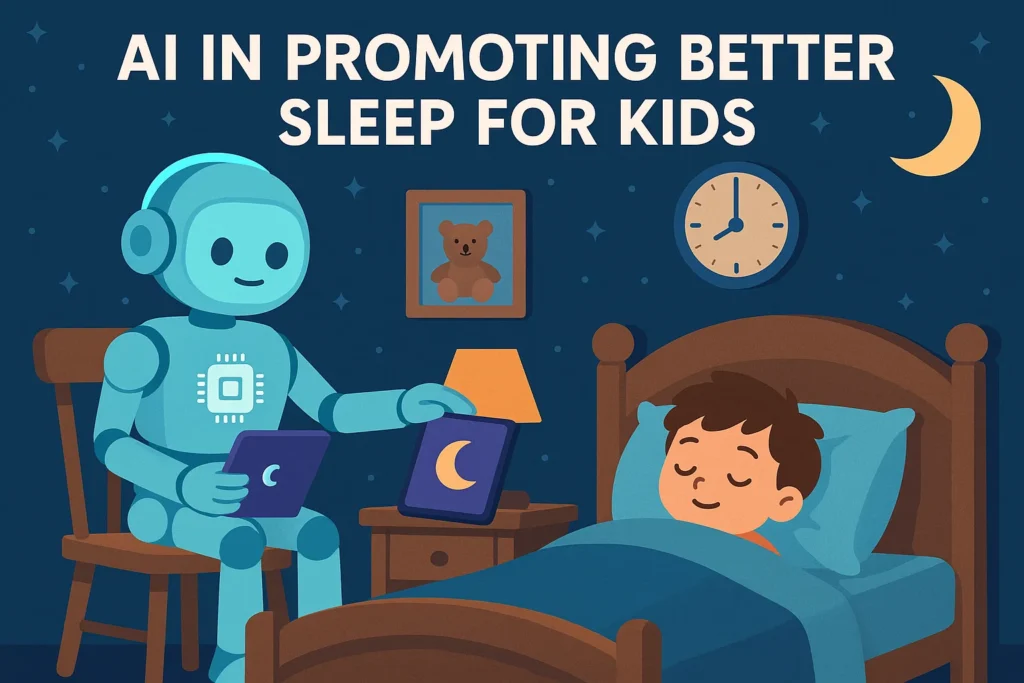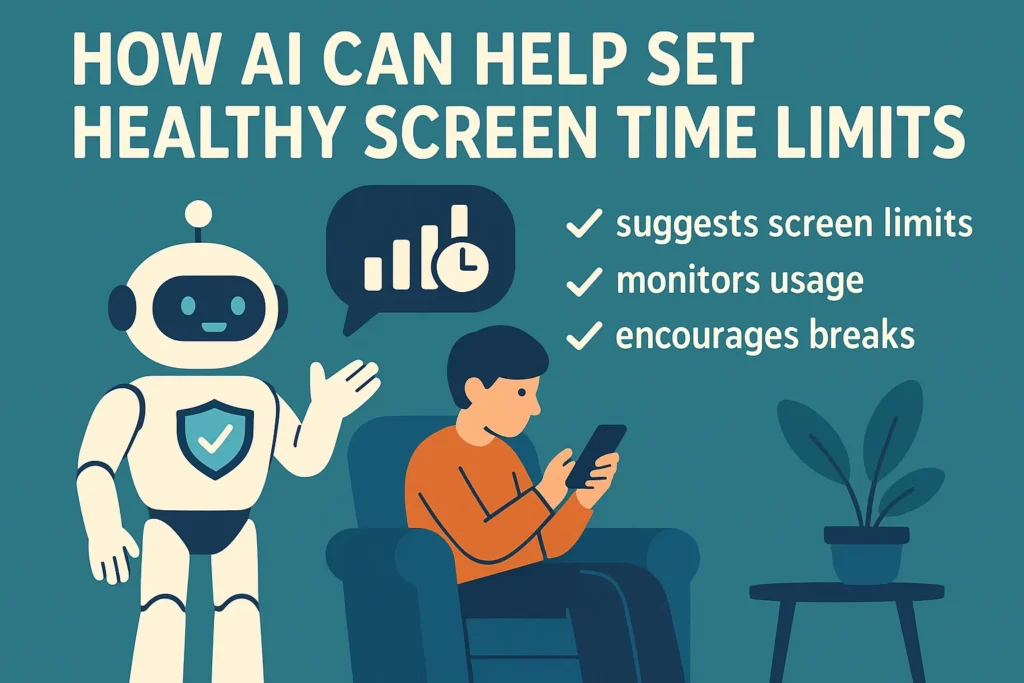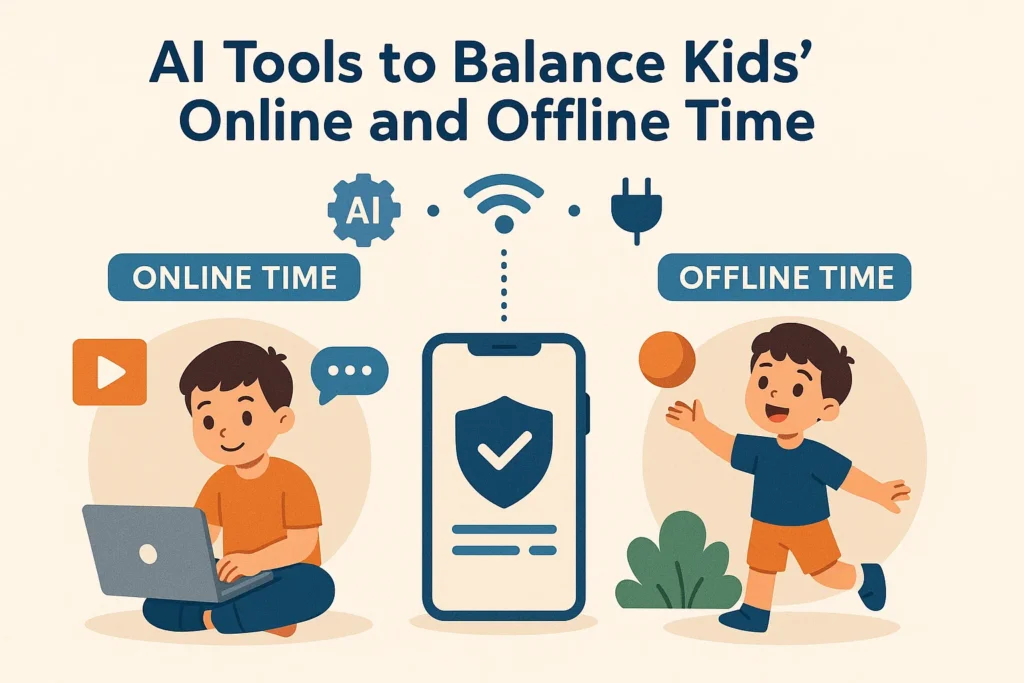📌 Introduction
Getting kids to follow healthy bedtime routines can be a challenge for parents. Poor sleep often impacts learning, mood, and growth. Thankfully, AI for better sleep in kids is making parenting easier. At AiBlogQuest.com, we explore how smart devices and AI-powered tools are helping families establish healthier sleep patterns, ensuring children wake up refreshed and ready to learn.
✅ 7 Ways AI for Better Sleep in Kids Works
-
Personalized Bedtime Routines
AI tracks sleep patterns and creates schedules tailored to each child’s needs. -
Smart Sleep Monitors
Devices use AI to measure movement, breathing, and restlessness throughout the night. -
Adaptive White Noise & Sounds
AI generates calming sounds that adjust in real time to help kids fall asleep faster. -
Light and Temperature Control
AI-enabled smart homes adjust room lighting and temperature for ideal sleep conditions. -
Sleep Coaching Apps
AI provides parents with daily reports and recommendations to improve bedtime consistency. -
Detecting Nighttime Disturbances
AI alerts parents if kids wake frequently or show signs of disrupted sleep. -
Habit Building
Over time, AI encourages healthier routines by rewarding consistency with bedtime schedules.
⚖️ Why AI Matters in Children’s Sleep
Unlike standard sleep trackers, AI for better sleep in kids adapts to a child’s habits. It doesn’t just record hours of sleep—it learns and recommends ways to improve both sleep quality and duration.
🚀 The Future of AI in Children’s Sleep
Soon, AI could integrate with wearables, home devices, and pediatric health apps to offer holistic sleep solutions. Parents may even get predictive alerts about potential sleep issues before they become serious.
🔗 Useful Links – AiBlogQuest.com
-
AI-Powered Sleep Trainers for Babies
-
AI Screen Time Limits – Healthy Digital Habits
❓ FAQ
Q1: Is AI safe for monitoring kids’ sleep?
Yes, when using trusted devices that protect privacy and only track non-invasive data.
Q2: Can AI replace a pediatric sleep consultant?
No, but it can complement expert advice with real-time insights and tracking.
Q3: Do AI sleep devices help with bedtime resistance?
Yes. Tools with calming lights, sounds, and routines encourage kids to fall asleep faster.
Q4: Can AI improve long-term sleep quality?
Yes, by continuously learning and suggesting healthier patterns over time.



